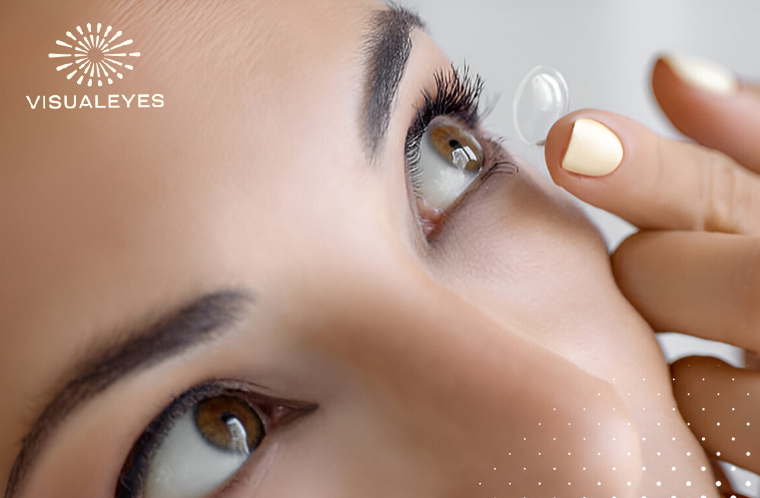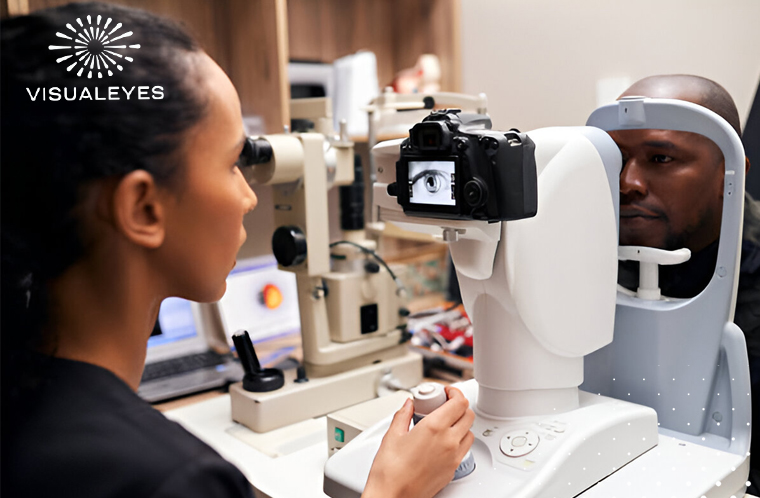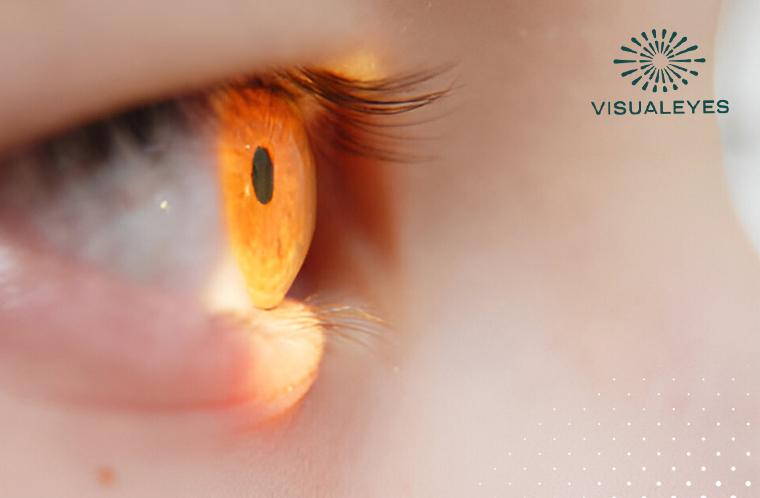- October 21, 2024
- Victor
- Comment: 0
- Eye Conditions and Treatments, Eye Health and Wellness, Eye Safety and Protection

Introduction
Contact lenses are a great alternative to glasses, providing convenience, comfort, and flexibility. However, proper care is essential to maintain healthy eyes. This guide will walk you through the essentials of using and caring for your contact lenses, helping you keep your eyes safe and comfortable.

UNDERSTANDING CONTACT LENSES
Contact lenses are used to enhance your eyesight. They are placed on the surface of your eyes. Some you wear in the day and throw away at night. Others you reuse after cleaning overnight. Every variety has a distinct wear schedule.
There are different types of contact lenses designed to meet various needs, each with his own advantages and disadvantages .
Daily Disposable: Worn for a single day and discarded, these lenses are convenient and help reduce the risk of infections since no cleaning is required.
Extended Wear: These lenses can be worn overnight and for several days, but they require careful cleaning to avoid complications.
Color Contact Lenses: Available in both prescription and non-prescription forms, these lenses not only correct vision but also change the color of your eyes.
BENEFITS OF CONTACT LENSES
Because they come into touch with your eye, they are controlled, and using them improperly or unregulated can create problems including eye disease. We’d like to discuss some of the wonderful advantages that can be obtained from properly fitted and prescribed contact lenses by your optometrist.
Improved Vision: Contacts lenses provide a wider field of view than glasses and won’t fog up.
Comfort: Many people find them more comfortable for an active lifestyle and day-to-day activities.
Aesthetic Flexibility: Contact lenses allow for a change in your look without drastically altering your appearance.
COMMON MISCONCEPTIONS ABOUT CONTACT LENSES
Several myths persist around contact lenses, including:
Eye Health Concerns: Some worry that lenses are harmful, but with proper care, they are safe for most users.
Comfort Issues: Modern lenses are designed to be comfortable and breathable.
Cost: While some lenses can be expensive, many affordable options are available, especially daily disposables.
PREPARING TO USE CONTACT LENSES
Consulting with an Eye Care Professional: Before getting contact lenses, it’s important to get:
Comprehensive Eye Exam: Regular exams help detect any underlying eye conditions.
Proper Prescription: Your eye care provider will ensure you have the right lenses for your vision needs.
Lifestyle Considerations: Your habits and lifestyle, such as frequent screen use or exercise, may influence the type of lenses you need

DAILY CARE AND MAINTENANCE OF CONTACT LENSES
Proper hygiene is key to keeping your eyes healthy.
Wash Hands Before Handling: Always wash your hands before touching your lenses.
Clean Lenses: Follow cleaning instructions to remove debris and bacteria.
Avoid Makeup and Hair Products: Keep lenses away from cosmetics that could interfere with them
HANDLING EYE INFECTIONS AND ALLERGIES
Contact lenses are a practical and easy way to correct vision for millions of individuals worldwide. However, using contact lenses can occasionally be difficult for people who have allergies.
Watch for Symptoms: Redness, discharge, or light sensitivity could indicate an infection.
Prevent Allergic Reactions: If you suffer from allergies, consider using daily disposable lenses.
Seek Professional Help: If you suspect an infection, remove your lenses and contact your doctor.

ROUTINE CHECKUPS
Maintaining the comfort of your contact lenses requires routine examinations. Your eye care specialist will evaluate the comfort and fit of your lenses in addition to your eye health during a normal check-up.
Regular Exams: Always keep up with eye exams to monitor your vision and eye health.
Update Your Prescription: Ensure your prescription is up-to-date.
Comfort Issues: Talk to your eye care professional about any discomfort or changes in vision.

CONCLUSION
Caring for contact lenses requires understanding the types available, consulting with professionals, and following a consistent daily routine. By adhering to these guidelines, you can enjoy clear and healthy vision with your lenses. Are you ready to take the next step in improving your contact lens care routine?
FREQUENTLY ASKED QUESTIONS (FAQs)
How often should I replace my contact lenses?
It depends on the type of lenses. Daily disposables are replaced daily, while extended wear lenses may last one to two weeks based on your eye care provider’s advice.
Can I sleep in my lenses?
Only specific lenses are approved for overnight wear. Always consult your eye doctor before sleeping in lenses.
What should I do if I lose a lens?
Remain calm and search carefully. If it’s lost, use backup glasses until you can replace the lens.
How can I reduce dry eyes with contacts?
Use rewetting drops, take breaks from lens wear, and stay hydrated.
Are there dietary tips for healthy vision?
A balanced diet rich in vitamins A, C, E, and omega-3 fatty acids can support eye health.
